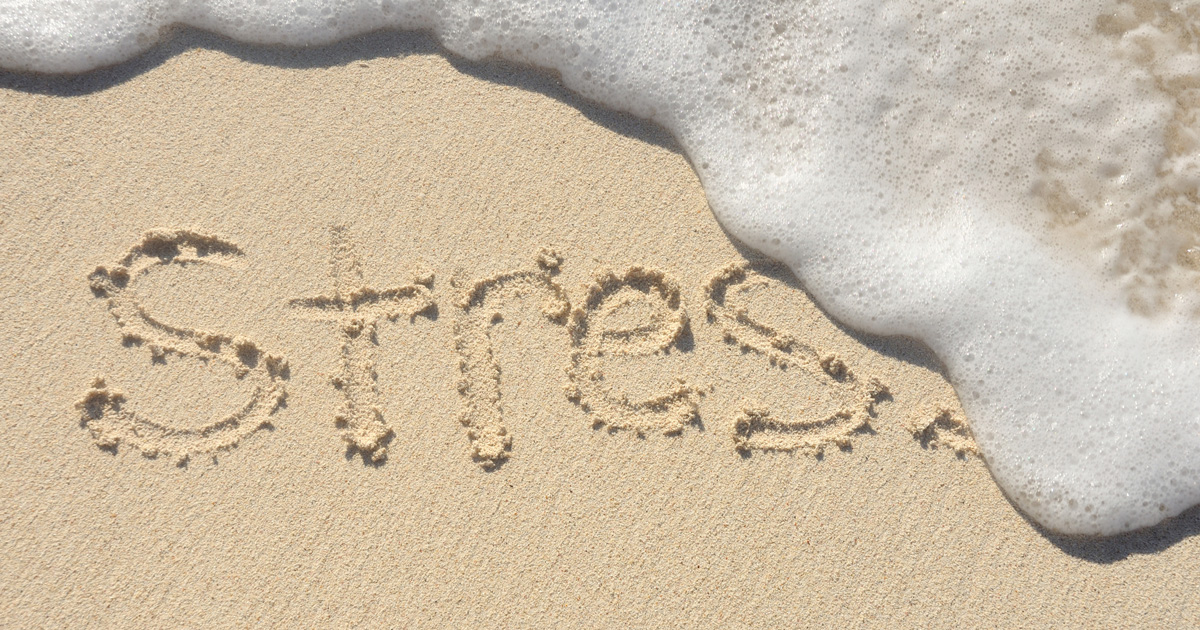We live in a naturally stress-inducing society- even when we’re not in the midst of a global pandemic. Stress relief isn’t a one size fits all thing. Everyone has their own way of coping with stress. Some people wind down by kicking off their shoes and watching TV after a long day of work. Some people sweat out their stress at the gym. Whatever it is you do to relieve stress (and, for some, anxiety), it’s important to not only tackle it in a healthy way but also find ways to prevent it in the first place.
What is Stress?
Stress is the feeling of tension in your body due to physical or emotional stressors. Emotional stressors could be anger, frustration, or nervousness. Stress can even lead to depression, anxiety, or panic attacks. In this YouTube video, Sage Neuroscience Center therapist, Elena Browning talks about what stress is and how we can reduce it.
For more videos like this, you can subscribe to our YouTube channel.
Stress is a survival instinct. When humans first started roaming this earth, stress helped them avoid danger. It kept us on our toes to be ready to fight if we needed to. Stress still helps us avoid danger but experiencing so much stress on a regular basis does a number on our health.
When we feel stressed, we can have physical symptoms like:
- Increased heart rate and blood pressure
- Pain in the chest and body aches
- Headaches
- Trouble sleeping
- Muscle tensions
- Digestive issues
- Weakened immune system
- Loss of sexual desire or ability
- Teeth grinding or clenching the jaw often
- Fidgeting
- Pacing
- Changes in appetite
These physical symptoms can worsen over time. This is why self-care is so important. Take care of yourself and your stress now, instead of putting it off or ignoring it.
Long-Term Effects of Stress
After years of intense stress, it really takes a toll on your physical and mental health. If we ignore our stress symptoms for too long, we can turn to unhealthy coping mechanisms like drinking, drug use, or food binging.
Other long term effects of chronic stress include:
- Depression
- Anxiety
- Personality disorders
- Gastrointestinal issues
- Hair LossHairloss
- Skin conditions like eczema, psoriasis, or acne
- Cardiovascular disease
- Obesity and other eating disorders
How to Prevent Stress
Like we mentioned before, there are many ways we can go about relieving our stress. But what about preventing stress in the first place? The same activities that can prevent stress can also relieve it. For example, exercise, meditation, healthy eating, and having set boundaries can help prevent and relieve stress. Another way to reduce stress is acknowledging that you can not control everything. Sometimes you just have to let things go. It’s so freeing. Surround yourself with supportive people and/or a therapist who will listen to you vent about all the things you’re dealing with without judgment.
How to Reduce Stress at Work
For a lot of us, work can be our main source of stress depending on the job we do. While it’s probably unlikely that you can quit your stressful job, there are a few things you can do at work to reduce your stress.
1. Actually, take your vacation time off
According to this survey, 55% of Americans used all of their vacation time in 2019. That means half of our nation really needs to take a break. Time off might be just the thing you need to help reduce your work stress and life stress in general.
2. Meditate
Meditation is prescribed for every sort of issue these days but that’s because it works! You’re supposed to take breaks at work. Use part of that time to breathe deeply. Focus only on your breath. Meditation doesn’t have to be this grand process that you make a big deal about. Sit at your desk, close your eyes, and just breathe for five minutes. Five minutes can help you manage stress and refocus.
3. Don’t procrastinate.
This may be wild news, but if you stop leaving tasks until the last minute, it won’t stress you out as much. Crazy, right? As a huge procrastinator myself, I know how stressful it can be to rush to get something done at the last second. You will feel a lot more confident and happy with your work if you start doing it early and give yourself enough time to finish it.
4. Communicate
Part of what causes you stress at work could be your co-workers driving you nuts. Pinpoint what it is they’re doing that is bothering you and confront them about it in a respectful way. Effective, transparent communication with those you work with can make a world of difference.
5. Get organized
A cluttered desk and disorganized calendar can make your life more difficult than it needs to be. Whenever an important deadline or meeting comes up, add it to your calendar and to your to-do list immediately. Don’t put it off because you might just completely forget about it.
Clear out your inbox regularly. Seeing you have 1,836 unread emails is not ideal for stress management. Save important emails in a folder and delete the rest that you don’t need to reference.
When it comes to your desk and physical files, everything should have its place. At the end of your workday get into the habit of putting everything back in its place and wiping down your work area. That way when you show up to work the next day, you’re greeted with a nice, clean workspace instead of sticky notes and stacks of paper on your desk.
Fun Activities You Can Do to Reduce Stress
Work or school aren’t the only things stressing us out. Living life comes with many different stressors and sometimes you just need to do something fun!
Some things you can do to relax can be super simple.
- Watch a chill movie. Action-packed films or horror movies might stress you out even more.
- Get creative. Bring out those watercolors. Take photos of pretty things around you. Knit a sweater. Play your guitar. Take the time for whatever your creative outlet is. You’ll thank yourself afterward.
- Go for a walk or a run.
- Call a friend that makes you laugh. Laughter is the best medicine after all right?
- Take a nap!
- Sit outside and just appreciate nature.
- Cook or bake.
- Tidying up isn’t always fun. However, if you’re the Marie Kondo type who is hard-core into organizing, go for it!
- Write in a journal.
- Meditate or pray.
You get the idea. Whatever relaxes you, don’t blow it off. Make time for the things that relieve stress and bring you joy.
Stress-Relieving Foods
It may seem silly that there are foods you can eat to help you reduce stress. While comfort food is definitely going to make you feel good at the moment, comfort foods aren’t always the healthiest option.
According to Healthline.com, the following foods have stress-relieving qualities that can help reduce cortisol levels (our stress hormone):
- Swiss chard
- Matcha
- Kimchi
- Sweet potatoes
- Organ meats (liver, kidney, heart, etc.)
- Artichokes
- Shellfish
- Eggs
- Fatty fish (salmon, herring, and mackerel)
- Acerola cherry powder
- Garlic
- Parsley
- Broccoli
- Tahini
- Sunflower seeds
- Chamomile tea
- Chickpeas or garbanzo beans
- Blueberries
Stress Relieving Products
If you are interested in buying things to reduce your stress, there are a number of items that can help calm your nerves.
- Essential Oils
- A diffuser
- Tea
- Stress ball
- Calming tunes (free on YouTube)
- Foam rollers
- Face masks
- Weighted blanket
- Massage device
When to Seek Professional Help for Stress
Remember, you do not need to buy things in order to reduce stress. In fact, we recommend not shopping as a coping mechanism for stress. The best kind of stress relief is free, such as setting boundaries, being organized, talking to someone, and doing something active. Stress comes in different shapes and sizes. It is completely normal to be stressed every once in a while, but don’t let it get to the point where you are in a constant state of stress. Chronic stress can be detrimental to both your physical and mental health.
If you are seeking professional care, Sage Neuroscience Center offers a Behavioral Health Intensive Outpatient program as well as individual therapy for those who need it. BHIOP is a group therapy program that provides tools, skills, and resources to live a better life. Call Sage today to learn more about BHIOP or our other services.




